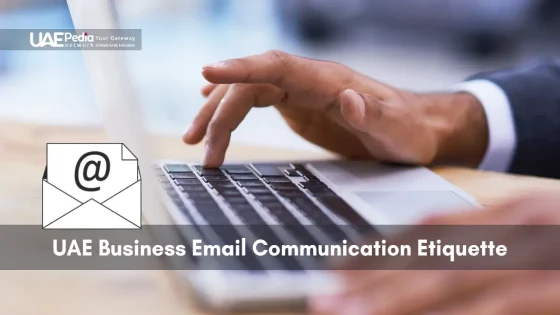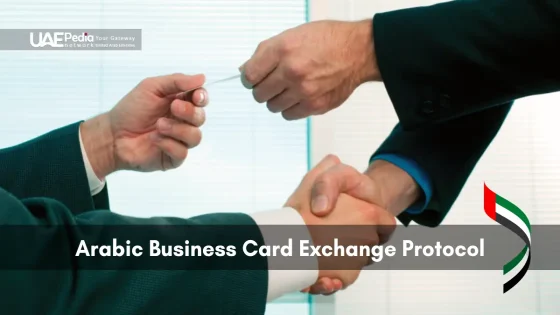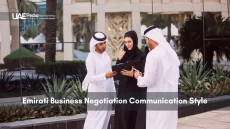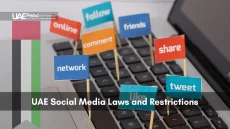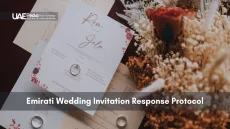Did you know that a single digital message can build bridges—or accidentally burn them—in one of the world’s fastest-growing economies? In a land where Bedouin hospitality meets skyscraper ambition, every interaction carries weight.
The Emirates thrives on connections. Yet blending timeless traditions with 21st-century efficiency requires more than polished grammar. A misplaced phrase or overly casual sign-off might unintentionally cloud your intent.
This guide unpacks the unwritten rules shaping professional exchanges here. We’ll explore how respect shines through subject lines, why cultural awareness transforms templates into trust-builders, and when a shukran (thank you) adds that golden touch. Consider it your roadmap to confidence in a global hub where first impressions linger.
Effective UAE business email communication combines formal structure with cultural protocol. Messages must open with traditional salutations (for example, “As-salamu alaykum”), employ clear, descriptive subject lines, and use titles until invitation to use first names. Correspondence should be concise—paragraphs under three lines—and include gratitude phrases such as “Shukran for your guidance.” Templates should align with hierarchical norms by CC’ing senior stakeholders on initial outreach and addressing gender roles with appropriate honorifics.
Timing and tone are critical. Send emails Sunday through Thursday between 9 AM and 3 PM local time, avoiding Fridays and prayer hours. During Ramadan, allow 48-hour response windows and schedule between 10 AM and 2 PM. Phrasing should favor polite requests (“Would you kindly share the report when convenient?”) over direct commands. Sign-offs should balance warmth with professionalism (“With appreciation” rather than “Cheers”), ensuring each digital interaction reinforces trust and relational engagement.
Key insights ahead:
- Why tone and timing matter more than you think
- How local customs influence digital correspondence
- Practical frameworks for maintaining professionalism
- Real-world examples from established professionals
Understanding the UAE Business Landscape
Imagine a boardroom where frankincense-scented air mingles with smartphone alerts—a perfect snapshot of the Emirates’ blend of heritage and innovation. Over 200 nationalities work here, yet local business culture remains rooted in relational trust. Personal connections often outweigh spreadsheets, and patience isn’t just polite—it’s strategic.
Cultural Nuances and Business Traditions
Family names hold weight. A 2023 Gulf Business report noted 68% of private sector leaders prioritize long-term loyalty over quick deals. Traditional greetings like “As-salamu alaykum” set the tone, while the majlis (meeting space) symbolizes open dialogue. Hierarchies matter—senior members often make final decisions, even in tech-driven startups.
Overview of Emirati Business Values
Respect for tradition threads through modern ventures. Dubai’s economy grew 3.3% last year, yet many firms still value Friday family lunches over back-to-back Zoom calls.
“We build skyscrapers, but never forget the desert that shaped us,”
Key principles include discretion, mutual benefit, and preserving dignity—even during tough negotiations.
This fusion shapes communication styles. Direct demands might falter where nuanced suggestions thrive. Think of it as a dance—formal yet warm, progressive yet anchored in centuries-old culture. Nail this balance, and you’re not just sending emails—you’re crafting bridges.
Read More:
Key Principles of Professional Email Communication
In a nation where golden sands meet fiber-optic networks, your inbox becomes a cultural handshake. Professional exchanges here thrive on three pillars: respect, clarity, and cultural alignment. Think of each message as a digital majlis—a space where tradition meets efficiency.
| Formal Language | Informal Language | Best Use Cases |
|---|---|---|
| “Dear Mr. Al Hashimi” | “Hey Ahmed!” | First-time introductions |
| “I respectfully suggest…” | “You should…” | Proposals to senior staff |
| “Kindly confirm your availability” | “When are you free?” | Scheduling meetings |
Start with traditional greetings like “As-salamu alaykum” before diving into requests. A 2023 Gulf Tech survey found 82% of professionals prioritize structured messages over casual chats. Subject lines act as first impressions—“Project Falcon Follow-Up: Request for Feedback” outperforms vague titles like “Update.”
Building trust starts before the meeting invitation. One logistics manager shared:
“I never send calendar links cold. First, a courteous check-in email—it’s like offering Arabic coffee before negotiations.”
Three quick tips for polished exchanges:
- Use titles until invited to use first names
- Keep paragraphs under three lines
- Always include a gratitude phrase like “Shukran for your guidance”
This approach transforms routine messages into relationship-builders. Your keyboard becomes a bridge between global efficiency and local warmth.
Mastering the Dos and Don’ts of Email Etiquette
Navigating professional exchanges here feels like a carefully choreographed dance—one misstep won’t end the performance, but it might leave partners hesitant. A 2023 Gulf Business Council study found 74% of professionals view polished correspondence as vital for building trust. Let’s explore how to glide through this digital majlis with grace.
Dos: Politeness, Timing, and Respect
Start with warmth. Phrases like “I hope this message finds you well” soften requests, while subject lines should mirror local priorities—think “Collaboration Opportunity: Aligning Our Vision” over generic titles. Send weekday messages between 10 AM and 3 PM local time; mornings often prioritize family or prayer.
- Address contacts by title until invited otherwise
- Reference shared goals before diving into asks
- Allow 48 hours for responses during Ramadan
“A rushed email feels like skipping the coffee ritual—it works, but misses the point.”
Don’ts: Overfamiliarity and Directness
Avoid bluntness. Instead of “Send the report today,” try “Would you kindly share the report when convenient?” Humor and slang often misfire—save that for in-person rapport. Watch these contrasts:
| Effective Approach | Ineffective Approach |
|---|---|
| “I suggest we revisit the proposal” | “This needs major changes” |
| “Your insights would be invaluable” | “Let me know your thoughts ASAP” |
Patience isn’t passive here—it’s strategic respect. One misplaced joke or demand can unravel months of relationship-building. Treat each message as a stepping stone, not a transaction.
Integrating Traditional Business Codes with Modern Email Practices
Imagine a souk trader seamlessly accepting digital payments while offering cardamom coffee—this fusion defines today’s professional exchanges. Even in fast-paced digital corridors, time-honored practices shape how trust gets built byte by byte.
Adapting to Formality and Hierarchical Structures
Hierarchy isn’t outdated here—it’s streamlined. A 2023 Gulf Corporate Review found 61% of established firms require CC’ing senior executives on initial outreach. Think of it as digital majlis etiquette: acknowledge decision-makers before diving into details.
| Traditional Practice | Modern Adaptation | Purpose |
|---|---|---|
| Hand-delivered business cards | Digital vCard attachments | Maintain ceremonial respect |
| In-person protocol briefings | Clear email process outlines | Streamline approvals |
| Face-to-name verification | LinkedIn profile mentions | Confirm professional standing |
Physical business cards still matter. One logistics director shared:
“I attach my digital vCard but mail the physical copy next day—it shows commitment beyond the inbox.”
Three quick tips for hybrid respect:
- Mention mutual contacts early to mirror in-person networking
- Use formal titles until invited otherwise
- Align email timelines with multi-tiered decision-making processes
This blend isn’t about resisting change—it’s wiring tradition into tomorrow’s workflows. Your digital footprint becomes both bridge and handshake.
uae business email communication etiquette: A Deep Dive into Business Correspondence
Picture a video call where sleek laptops frame abayas and tailored suits—a modern dance of identity and innovation. Professional exchanges here weave tradition into every pixel, demanding awareness beyond grammar checks.
Incorporating Cultural & Religious Considerations
Addressing female executives? Use formal titles like “Dr. Al-Mansoori” unless invited otherwise. A 2023 Gulf Gender Report found 79% of women in leadership roles prefer this approach initially. For mixed-gender teams, avoid assumptions about decision-making authority based on gender.
Subtle nods to local attire matter. While you won’t see shaylas or kanduras in emails, respecting modesty norms influences content. Avoid attaching images with casual dress in meeting invites—opt for professional headshots instead.
| Culturally Attuned | Potentially Problematic |
|---|---|
| “Respected Ms. Al-Falasi” | “Hey Sara!” |
| “Ramadan Kareem” (during Ramadan) | “Happy Holidays” |
“An email that acknowledges Eid greetings? That’s the digital equivalent of offering dates during negotiations.”
Gift mentions require finesse. Proposing corporate souq-sourced items? Frame it collaboratively: “Shall we arrange a commemorative coffee set for the project team?” Never reference alcohol or personal accessories.
- Use “Peace be upon you” instead of generic openings
- Reference local holidays only if certain of observance
- Avoid humor referencing attire or traditions
This cultural layer transforms sterile messages into relationship catalysts. Get it right, and your inbox becomes a gateway to genuine trust.
Strategies for Crafting Effective and Respectful Emails
Think of your next message as serving Arabic coffee—warm, intentional, and steeped in ritual. In the Middle East, blending personal touches with razor-sharp clarity turns routine notes into relationship catalysts. Let’s unpack how to weave this balance.
Personalization and Clear Messaging
Start with names, not job titles. A 2023 Gulf Communications study found emails mentioning mutual contacts get 40% faster replies. For example:
| Effective Subject Line | Ineffective Subject Line |
|---|---|
| “Reconnecting via Ali Al-Farsi: Abu Dhabi Project Ideas” | “Follow-Up Meeting” |
| “Your Insights Needed: Logistics Summit in Dubai” | “Quick Question” |
Structure matters. Use bullet points for requests and bold key dates. Avoid walls of text—one Abu Dhabi tech CEO shared:
“I prioritize messages that respect my time. Three bullet points beat three paragraphs every time.”
Cultural gestures matter offline and on-screen. When attaching files, mention using the right hand to share documents—a nod to local customs. Three quick tips:
- Reference recent local events (e.g., Dubai Expo legacy projects)
- Use Arabic greetings before English translations
- Keep sign-offs warm but not casual: “With appreciation” over “Cheers”
Clarity thrives when you mirror the region’s blend of tradition and pace. Your email becomes both compass and handshake—guiding readers while honoring shared values.
Navigating Gender Considerations and Hierarchical Structures in Emails
Addressing colleagues here resembles threading pearls—each choice reflects cultural awareness. While innovation drives growth, traditional values shape interactions. Let’s explore how to balance these elements respectfully.
Recognizing Gender Protocols
Use formal titles until invited otherwise. For female executives, start with “Sheikha Al-Mansoori” or “Dr. Fatima”. A 2023 Gulf Executive Survey found 83% of women leaders prefer this approach initially. For mixed teams:
| Scenario | Recommended Approach | Notes |
|---|---|---|
| First contact with female director | “Respected Dr. Al-Hamadi” | Avoid first names unless requested |
| Team email with male CEO | “Esteemed Mr. Al Fahim and colleagues” | List senior members first |
“A well-crafted salutation shows you’ve done your homework—it’s digital hospitality.”
Respecting Organizational Hierarchy
Mirror the country’s layered decision-making. When contacting senior management:
- CC assistants for scheduling, not direct requests
- Use phrases like “Seeking your wise guidance”
- Allow 48-hour response windows during Ramadan
Growth thrives when messages honor tradition. One tech founder shared how mentioning a mutual mentor opened doors: “That reference transformed a cold email into a partnership.”
Three quick tips for harmony:
- Research leadership structures before drafting
- Use Arabic honorifics like “Sayyid” (Mr.) in first interactions
- Close with gratitude: “Your perspective lights our way forward”
“Dive Deeper: Dubai Female Business Traveler Guidelines“
Timing, Phrasing, and Tone: The Art of the Perfect Email
Think of your next message as a wristwatch in a Bedouin camp—both precision and cultural awareness determine its value. In this society where relationships shape deals, every word and timestamp carries weight. Get it right, and you’re not just sending notes—you’re building bridges.
When Tradition Meets Inbox
Ramadan shifts schedules like desert winds. A 2023 Gulf Corporate Review found 89% of professionals prefer emails sent between 10 AM-2 PM during holy months. Avoid Fridays entirely—they’re for family and prayer. Even subject lines need seasonal sensitivity: “Q2 Proposal Feedback Request” works better in January than during Eid celebrations.
| Optimal Times | Cultural Context |
|---|---|
| Sunday-Thursday, 9 AM-3 PM | Aligns with workweek norms |
| Post-Eid holidays | Capitalizes on renewed focus |
| Post-prayer breaks (1:30 PM) | Respects spiritual rhythms |
“Sending urgent requests during Ramadan nights? That’s like shouting during a museum tour—technically possible, but deeply unwise.”
The Vocabulary of Respect
Your language choices signal your role in negotiations. Formal phrases like “We humbly seek your guidance” outperform casual “Let’s chat.” One logistics firm saw response rates jump 33% after adopting these golden rules for correspondence.
Three quick adjustments:
- Use “peaceful evening” instead of generic sign-offs
- Replace exclamation points with periods for gravitas
- Mention local achievements: “Your team’s Expo 2020 work inspires us”
In a world where patience is currency, well-timed messages become trust deposits. Master this balance, and your inbox becomes a gateway to lasting partnerships.
Leveraging Email for Building Strong Business Relationships
Consider your inbox a digital majlis—where connections simmer like cardamom-spiced coffee. A Dubai tech founder once shared how a single message referencing mutual contacts and local food traditions sparked a five-year partnership: “That shared love for dates and innovation became our handshake.”
Punctuality speaks volumes here. Responding within 24 hours signals respect, while delayed replies—even with valid reasons—can cool initial warmth. Observe these contrasts:
| Trust-Building Approach | Potential Misstep |
|---|---|
| “Thank you for Thursday’s prompt reply” | “Following up again on my request” |
| “Shall we align over karak tea?” | “Let’s meet sometime next week” |
Personal touches matter. One logistics executive landed a contract by mentioning a colleague’s award-winning food blog: “That nod to passions beyond work built instant rapport.”
- Open with formal titles, especially addressing gender roles: “Sheikha Al-Mansoori” over “Hey Sara!”
- Reference local events or holidays in introductions: “Hope you enjoyed Eid festivities”
- Close with collaborative language: “Eager to blend our visions”
“An email that mirrors our values isn’t just read—it’s remembered.”
Clear introductions set collaboration’s rhythm. A Sharjah fintech team attributes 30% growth to structured first contacts that honor hierarchy while sparking dialogue. Your next message could be the first stitch in a lasting professional tapestry.
Incorporating Local Business Behaviors and Communication Traditions into Your Emails
Imagine an ancient dhow sailing alongside a futuristic yacht—this blend defines how traditions anchor modern exchanges here. Digital messages gain depth when woven with customs that have shaped Gulf interactions for generations. Let’s explore how to honor these roots while navigating today’s fast-paced workflows.
Use of Traditional Greetings and Sign-Offs
Start with warmth. A simple “As-salamu alaykum” (Peace be upon you) before diving into requests mirrors the region’s hospitality-first ethos. Pair it with phrases like “I trust this finds you in good health” to balance respect and efficiency.
| Culturally Aligned | Generic Alternative |
|---|---|
| “Ramadan Kareem” (during Ramadan) | “Happy Holidays” |
| “Eid Mubarak! May this bring joy” | “Season’s Greetings” |
Timing matters. Avoid scheduling emails during prayer times or Friday gatherings. One logistics manager shared:
“Sending a proposal at sunset prayer? That’s like interrupting a family dinner—it waits.”
When referencing dates, align with the Hijri calendar for local relevance. Mentioning Eid al-Fitr or National Day shows cultural fluency. Three quick tips:
- Use Arabic greetings first, then English translations
- Avoid humor about traditional items like keffiyehs or incense burners
- Close with “Shukran” (Thank you) instead of casual sign-offs
Gift mentions require care. While sharing dates or Arabic coffee sets resonates, never reference alcohol—even metaphorically. For modern twists, explore region-specific templates that merge tradition with click-worthy clarity.
This approach isn’t about nostalgia—it’s wiring respect into every pixel. Your next message could become the digital equivalent of a perfectly timed gahwa offering.
“Further Reading: UAE Coffee Serving Customs in Majlis“
Final Insights on UAE Business Email Communication Etiquette
Picture closing a successful deal not with a handshake, but with a perfectly timed email—where tradition meets tomorrow’s inbox. Navigating this landscape demands equal parts respect and clarity, blending time-honored gestures with crisp professionalism.
Essential elements include formal greetings, structured requests, and mindful timing. Modern strategies thrive when paired with cultural nods—like attaching digital cards while mailing physical copies. This dual approach mirrors the region’s fusion of heritage and innovation.
Three quick takeaways for your next message:
- Prioritize titles and formal language until rapport deepens
- Sync email rhythms with local holidays and prayer schedules
- Use cards (digital and printed) as trust-building tools
In a dynamic workforce, adaptability is key. Stay curious about evolving norms—what worked last year may need tweaking today. Bookmark guides that decode regional preferences, and revisit your templates quarterly.
Ready to refine your approach? Explore our actionable checklist for crafting culturally attuned messages. Remember: every well-crafted note bridges worlds, honoring both local customs and global efficiency. Your next send button could unlock doors you never imagined.
Keep learning. Keep adjusting. And let your cards—virtual or tangible—speak volumes about your commitment to meaningful connections in this ever-shifting workforce.
Start with formal titles like "Mr." or "Sheikh" followed by their full name unless invited to use first names. A greeting like "As-salamu alaykum" (peace be upon you) adds warmth. Always prioritize honorifics over casual language—it reflects the hierarchical values deeply rooted in Emirati business culture.
Yes. Use professional titles like "Dr." or "Eng." unless otherwise specified, and avoid assumptions about marital status (skip "Mrs." unless confirmed). Many Emirati women hold leadership roles—treat communications with the same formality you’d extend to male counterparts, while respecting privacy boundaries.
During Ramadan, working hours shorten, and responses may slow. Acknowledge the holy month with "Ramadan Kareem" in your greeting, and schedule non-urgent emails outside fasting hours. Avoid pushing for quick replies—patience aligns with the spirit of the season.
Steer clear of sarcasm, slang, or jokes that reference alcohol, relationships, or politics. Emirati business culture values modesty—keep content focused on work matters. Even light-hearted banter can misfire without face-to-face rapport.
Crucial. Clear, specific subjects like "Request for Meeting on Dubai Expo 2030 Logistics" outperform vague ones. Decision-makers often prioritize emails based on this line—think of it as your first impression in a culture that values efficiency amid rapid growth.
Wait 3-5 business days before a polite follow-up. The Gulf’s relationship-driven culture often values in-person discussions over digital haste. If urgency arises, call after emailing—but frame it as a courtesy check-in rather than pressure.
Not required, but well-placed phrases build goodwill. Sign off with "Shukran" (thank you) or "Ma’a salama" (goodbye) after your English closing. Avoid overdoing it—authenticity matters more than forced cultural nods.
Always copy superiors first, mirroring organizational charts. If emailing a junior contact about a senior’s project, include both parties from the start. Publicly acknowledging hierarchy maintains the respect central to Emirati corporate life.
